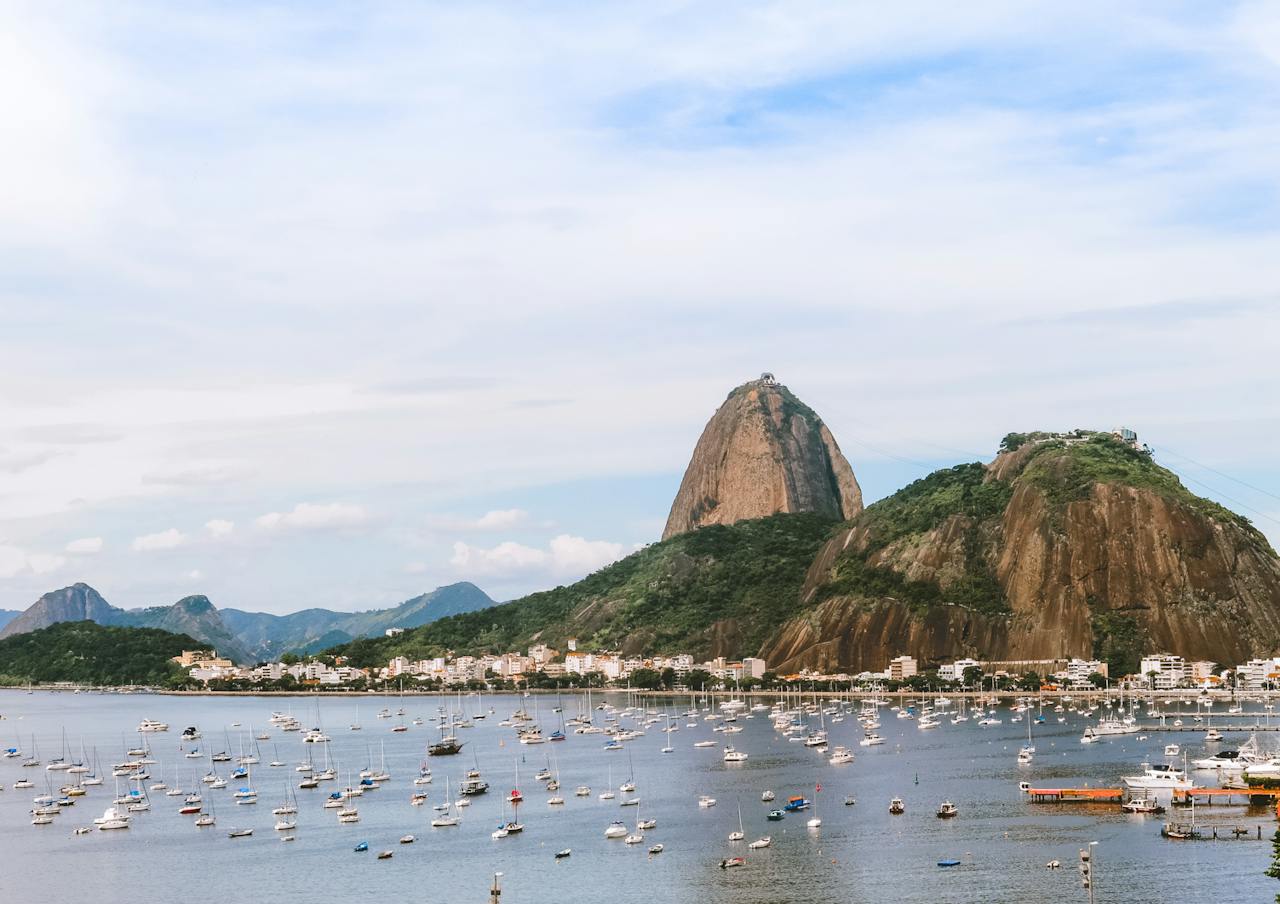Beer has a special place in Brazil’s heart. The country is the third largest beer market and Brazilians consume around 140 million hectoliters of beer annually.
It’s a little-known fact that Brazil’s beer scene is much like America’s early brewing history – one that is heavily influenced by Germans. The tradition of brewing in Brazil originated during German immigration in the early 19th century. The German population boomed in the south and it is where the first microbreweries were established during the 1830s.
A city in southern Brazil, Blumenau, is a home for hundreds and thousands of German descendants, and this is where the second largest Oktoberfest in the world happens. Blumenau hosts a collection of small breweries that carried on the world-renowned tradition of German beer making under the brands Schornstein, Eisenbahn and Das Bier. Brazilians here and around the country has adopted beer making and drinking with much passion just like the Germans who brought their special recipes long ago.
The Bohemia brand, now owned by Anheuser–Busch InBev, is considered as the first Brazilian beer and is currently the oldest beer still being manufactured until today. Two important brands, Brahma and Antarctica, were being produced since the 1880s. Old, malt-forward German styles like Pilsners, hefeweizens, marzens and bocks still abound in Brazilian markets.
Pilsners still dominate the Brazilian beer market, accounting for 98% of the total market share. Its largest producer of beers is Ambev, the largest brewery in Latin America and the fifth largest in the world. The brewing giant was formed in 1999 through a merger between the largest, then-rival breweries: Brahma and Antarctica. When it merged, people feared it would create a monopoly, but the company announced it only plans to create Brazil’s first multinational firm. It remained true to its promise, as it merged with Belgium’s mighty Interbrew.
German standards were the thing to brew until adventurous Brazilians started experimenting with modern styles through the 1990s. The country’s craft brewers creating their own Brazilian premium beer are gradually making an international impact, although their population is considerably small. It is estimated that the premium beers comprise only 2% of the market share in the whole country. Microbreweries continue to emerge, and they are creating a whole new beer scene in Brazil.
The country is seeing growth in its premium beer market because people are learning to drink better. Many Brazilians today do not want to just drink the beer; they want to harmonize it with different kinds of dishes. This was proven by the success of microbreweries, which now push large Brazilian breweries to rethink their beer-making philosophy, thus improving quality of mass-produced brands. Over the last two decades, more and more people are learning that Pilsner is not the only beer, and the gradual paradigm shift is expected for more years to come.
Because the availability of craft beer is limited, it is considered as somewhat elite like wine, and a lot of people began training to become beer sommeliers. Most microbreweries are crafting small quantities, with a large craft brewer brewing around 10,000 to 13,000 hectoliters annually.
High profile brewers from other parts of the world are taking notice of the potential of Brazil’s craft beer. New York’s Brooklyn Brewers and Denmark’s Mikkeller are working with Brazil’s Cervejaria Wäls and Cervejaria Way Beer, respectively. This is one of the reasons why it’s promising.
One of the coolest things about Brazilian craft beers is the use of local, unconventional ingredients, creating interesting flavors and aromas. Brewers began using ingredients like passion-fruit-like taperebá, bacuri tart fruit, Brazilian grown coffee, cassava, Brazil nuts, umburana wood. They also let beer age in locally harvested wood. Locals adopt these because Brazil’s warm climate doesn’t enable hop cultivation, and imported ingredients from Europe and US are expensive.
To celebrate beer as an important part of their culture, Brazilians hold beer festivals that attract thousands of tourists from inside and outside their country. As mentioned earlier, the second largest Oktoberfest is held at Blumenau for 18 days. But there is an event for the craft beer-minded and it supports a serious beer movement: the Festival Brasileiro da Cerveja, or the Brazilian Beer Festival. It is held also in Blumenau yearly, presenting hundreds of different kinds of beers and reuniting top flavors and aromas. Meanwhile, the Wikibier Festibal in Curitiba is also one famous festival that includes home brewers, and real food and beer pairings.
